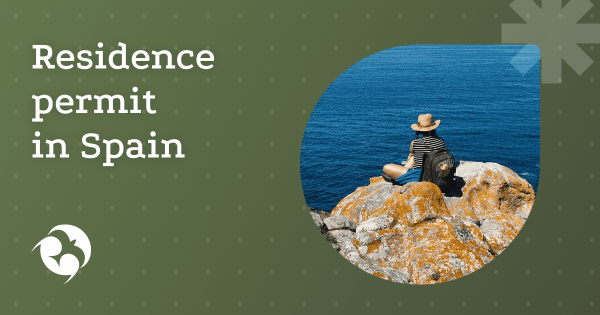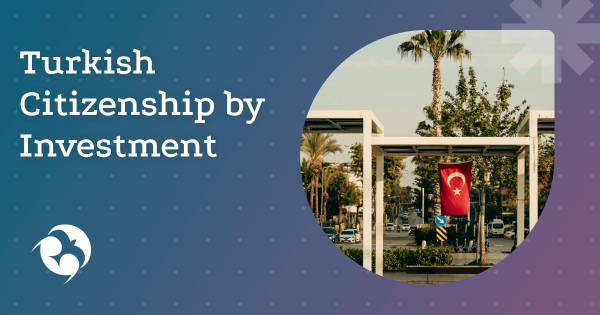Spain, with its warm Mediterranean climate, has become one of the priority locations for immigrants. Applicants are granted an estancia for 90 days and a residencia for 3 to 5 years by the migration authorities. Grounds for obtaining a residence permit: study, entrepreneurship, investing, family reunification, settlement. We are glad to see financially independent people with passive incomes and digital nomads who earn their living abroad remotely. Advantages of the status:
- free movement within the EU;
- visa-free entry to Spain;
- opening accounts in local banks;
- general education;
- receiving medical insurance services.
Ways to obtain a residence permit
When granting statuses, the authorities are guided by the law “On the rights of foreigners” 2011. Each default basis has its own characteristics, requirements for documents and the registration procedure.
For digital nomads
The Spanish Digital Nomad program is equivalent to a 3-year residence permit. The receipt process is regulated by by Law No. 28/2022. Employees of foreign companies with families, incomes from 2,700euros per month, proven qualifications, and 3 years of relevant experience can become participants. The amount is equivalent to the Spanish minimum wage (IPREM) and is 200%. When adding family members, 75% is added to the application for the spouse, 25% for dependents under the age of 21.
For financially independent
Temporary no Lucrativa is issued to solvent cosmopolitans for a year with an extension without the right to work, provided they have a stable passive income. Applicants are required to submit tax returns for 3 years, confirm a deposit in a European bank for 28,880 €, plus 7,200€ each for the other participants indicated in the application. If the status is extended for 2 years, the required amount increases to 57,600 €, plus 14,400 € for each dependent.
This is an option for those who earn on rent, interest on deposits, assets or remote business activities. Holders of the status can register a business in the Spanish registry, but delegate the administrative process to the manager and only receive dividends. Those who do not travel abroad for more than six months after 5 years can collect a permanent residence dossier.
Training
Russian citizens are attracted by Spanish higher education institutions with ANECA accreditation. They give the right for registration of Visado de estudios. The visa does not belong to the immigration category, and is not counted in the naturalization period. But it allows you to legally stay in the country for the period of study, work 20 hours a week, if you have permission to work full-time during the holidays. Registration conditions: admission to the university faculty, language / business school, the amount equivalent to IPREM for each month of study, plus 75% per parent. University graduates have the right to change their grounds, to take work/commercial permits leading to citizenship in the future.
Golden Visa
Residencia para Inversores is a fast and expensive way to legalize. According to statistics from the Ministry of Foreign Affairs, 33,237 foreigners became residents with the help of the state program from 2013-2024. Grounds for registration:
- purchase of real estate for 500,000€;
- opening a deposit in a Spanish bank for 1 million €;
- purchase of assets of local enterprises for 1 million € or bonds for 2 million €.
For startups
This type of residence is relevant for entrepreneurs who decide to implement business projects in Europe. The authorities welcome ideas related to innovation, IT, engineering, and “green” energy sources. Applicants are required to prove their value, have a specialized education, relevant work experience, 8,000 euros each for founders and co-founders. They are required to provide a detailed resume, a working and financial business strategy for 3-4 years. The decision on the appropriateness of the program is made by the Ministry of Economy 2 months in advance. With a positive outcome, a residence permit is issued for a year with the prospect of extension up to 5 years.
By Residency (settlement)
Immigration Law (articles 31 and 68, paragraph 3), Royal Decree No. 557 (art. 27) allows third-country nationals to obtain a residence permit based on social, labor, and family residency. Residency by settlement is issued to those who can confirm illegal continuous residence in the territory for 3 years. Utility bills, receipts from clinics, and job offers are suitable as documents.
For family relations
Residencia de Familiar is issued to close relatives of Spanish citizens and residents who have been living here for at least a year. Family members, legal/common-law spouses can count on this category. The inviting party draws up 2 copies of the EX02 form, provides documents confirming kinship, place of residence, and profitability. The amount of income required is 150% IPREM, 660€ for a family of 2 people, plus 10% for each dependent. The permit is issued immediately for 3 years with the right to extend.
Requirements for obtaining
Spaniards impose a number of conditions on foreign applicants. The key thing is to have a passport from a country outside the European Economic Union. Additional:
- no criminal record and no entry into the Schengen area;
- positive visa history;
- financial security;
- own/rented housing in Spain;
- purchase of medical insurance.
The rules of entry and residence apply to spouses, minor children, and financially dependent parents. Primary residence permits are issued for the same period as the main applicants.
Required documents
Expats collect cases to obtain a residence at the Ministry of Integration and Social Security. Applicants can request a complete list of a specific type of residence permit in the Spanish Embassy. Universal list:
- a copy of a foreign/general passport;
- application form;
- unified photos;
- the basis for requesting a residence permit;
- diplomas of education;
- extract from bank;
- documents for family members to confirm kinship;
- receipt of payment of the fee.
To conduct business, you need papers on the establishment of a company, tax reports, a certificate of ownership, licenses, and a detailed business strategy. Students and relatives are additionally required to provide official invitations and certified sponsorship guarantees. Documents issued outside the country are translated into Spanish by licensed translators and apostilled.
The process of obtaining
The design consists of successive stages:
- Choosing the basis for the move, collecting documents for the opening of a national D visa at the country’s representative office. It takes 1-2 months to submit a dossier and wait for the result.
- Transfer to Spain. After arriving in the country, applicants visit the migration department at the Ministry of Integration and Social Security, undergo fingerprinting and submit documents.
- Obtaining a resident’s card. The dossiers of foreign citizens are reviewed for up to 3 months. After the approval (resolución favorite), authorized representatives send a notification asking them to visit the office and pick up Tarjeta de residencia.
The procedure is complicated for entrepreneurs. Businessmen are required to choose company names and uniforms, obtain tax numbers, open corporate accounts, pay taxes on authorized capital, and register with the Chamber of Commerce.
Extension and renewal of residence permit
The first residence card is issued on a D visa for a year, then the period is extended on a documentary basis 1 or 2 times. Applicants collect copies a couple of months before the end of the course.:
- passports;
- current residences;
- they write EX-17 statements;
- attach registration certificates;
- state duty receipts (Modelo 790 Codigo 012);
- foto carnet photos printed in a local studio.
The dossier is submitted to the local migration department for approval. The extension time depends on the type of status. The decision is mostly made in 2 months, but the exact time depends on the province. For entrepreneurs, the deadline is sometimes delayed up to 8 months. With the third extension, applicants for Temporary no Lucrativa can apply for permanent residence with the right to work, benefits and allowances. If the application for updating Tarjeta de residencia is approved, expats are enrolled for repeated fingerprinting on the public services website. The status of the application is residents is checked on the website. The card is ready in a month.
The path from residence permit to permanent residence and citizenship
After 5 years of naturalization, the path to permanent residence opens. Blue Card holders with earnings exceeding 1.6 times their annual gross salary are accepted after 4 years. Relocators are allowed to leave the territory only for the duration of their vacation or for legitimate reasons. In case of absence for more than 6 months, even if the migration service is informed, the status is revoked.
The presence of real estate does not give the right to obtain citizenship under a simplified program. Passports are issued faster to spouses of citizens, widowers who have been married for at least 12 months, and descendants of native Spaniards. When submitted in the usual manner, cases are considered in the Registro Civil at the place of registration after 10 years of assimilation. Expats attach DELE language certificates and exam results in history and culture to the main package of papers.
Rights and obligations of the owner
The law equalizes foreigners in basic rights with Spaniards, except for entering public service and voting. Along with local residents, they contribute taxes to the country’s budget. The number of tax bases is 14, including income tax (IPRF). The state has a progressive rate. Individuals with earnings of less than €22,000 per year, unlike the self-employed, do not file declarations. Incomes above the minimum threshold are charged 24-45%, depending on the amount of earnings.
Non-residents pay interest on their income in the country. For young companies, the 15% rate is applied for the first year, while the rest are charged 25% each. Entrepreneurs, including sole proprietors, pay VAT in the amount of 21%. It has been reduced to 10% for companies engaged in food and public services. Bilateral agreements have been concluded with most countries to avoid double taxation.
The cost of a residence permit
The state fee is 90€. Foreigners pay 50€ for a sheet of notarized translation. A package of papers for a family with children costs about 1,500€. The price of the medical policy starts from 45€ per month. Expats pay 16€ for plastic cards. Ignorance of the laws and legal subtleties force you to seek help from licensing agencies. Migration lawyers’ services start from 1,000€.











Hi. Dear Community. Which one is the cheapest and the best country to apply for a start-up business in Europe
Hello, Nadeem Badar
Thank you for your question. Finding the right country to apply for a visa for aspiring entrepreneurs requires a balance between cost, acceptability, and a support system. There is no single “cheapest and best” country for everyone, as it largely depends on the type of your business, team, and goals.
We recommend that you consult with our specialist for a detailed consultation tailored to your specific business plan. Out contacts your can find here: https://visa-digital-nomad.com/ru/contacts/